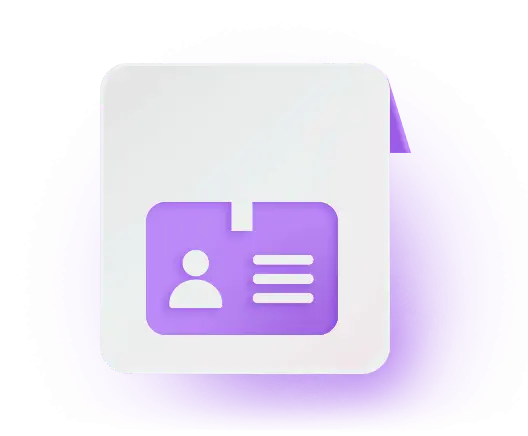General terms related to spherical mirrors: A mirror with the shape of a portion cut out of a spherical surface or substance is known as a...

General Terms Related to Spherical Mirrors
April 11, 2024
The Central Board of Secondary Education (CBSE) conducts Class 10 examinations for students studying in schools affiliated with the board. Students who have passed their Class 9 exams from any recognised board of education and have studied for a year in Class 10 are eligible to take the CBSE 10th board exams. To register for CBSE exams, students must fill out the application forms and pay the examination fees.
After two years of the academic session being affected by the COVID-19 pandemic, the CBSE Class 10 academic session has resumed normalcy for the 2024 session. The page covers important aspects of the 10th CBSE, like preparation tips, the latest syllabus, exam pattern, marking scheme and other significant information for the students to start their class 10 board exam preparation effectively.
For the past two years, CBSE has had to make modifications to the Class 10 exams to cope with the challenges of the COVID-19 pandemic. But with the situation returning to normal, CBSE has decided to discontinue the two-term system and resume regular board exams. Students can refer to the table below for important details about the CBSE Class 10 exams:
| Particulars | Details |
|---|---|
| Name of Exam | CBSE Class 10 Board Exam |
| Conducting Board | Central Board of Secondary Education |
| Exam Level | National Level |
| Frequency of Exam | Annual |
| Mode of Registration | Offline for regular students Online for private candidates |
| Registration Fees | INR 1500 for five subjects; INR 300 for each additional subject |
| Mode of Exam | Offline |
| 10th Primary Subjects | Science, Mathematics and Social Science |
| 10th Language Subjects | English, Hindi, Sanskrit, Urdu, Bengali, Telugu, Tamil, Malayalam, Kannada, Marathi, Gujarati, Punjabi and other regional languages |
| Official Website | cbse.gov.in |
The CBSE Class 10 brochure contains all relevant information related to the 10th standard curriculum, syllabus, and other course-related details. Students can check the brochure to get all the necessary information and prepare for the exam successfully. Download the CBSE Class 10 new brochure.



The CBSE Class 10 Registration process 2024 is over. The registration application details are provided on the official website. The registration fee for CBSE Class 10 2024 was 1500 INR for 5 subjects and an additional 300 INR for a particular subject. After filling out the application or registration form on the official website, students must pay the application or registration fee.
CBSE has launched the online Pariksha Sangram platform for the affiliated schools to amend their List of Candidates (LOC). The window for this platform is made available from November to December. All the affiliated schools received a dedicated ID and password to log in to the portal. The schools were instructed to follow the guidelines and make the proposed changes on the portal. After that, the board would provide approval or denial after going through them.

For the academic session 2024, CBSE has decided to resume the regular Class 10 board exam and do away with the two-term system. The exam pattern for CBSE Class 10 2024 is as follows:

The CBSE Class 10 syllabus 2024 has been released on the official website. Students who plan to appear for the 10 board examinations must be aware of the new syllabus for Class 10 CBSE 2024. Knowing the syllabus helps them understand the chapters and topics covered and what needs to be studied. Check the subject-wise CBSE 10 syllabus from the table below:
| S.No. | Subject |
|---|---|
| 1 | Maths |
| 2 | Science |
| 3 | Social Science |
| 4 | English |
| 5 | Hindi |
Read more about CBSE Class 10 syllabus!
Students can perform 85 experiments on various topics of CBSE Class 10 Science. It will help them understand the concepts easily. Thus, students can score excellent marks in their Class 10 Science Board final practical exam. Click on the links below to start experiments on CBSE Class 10 Science topics on the Embibe Lab Experiments app.
| Sr. No. | Topic | Embibe Lab Experiment Link |
|---|---|---|
| 1 | Complete Combustion of Alcohol | Start Experiment |
| 2 | Tracing the Path of a Light Ray Through Glass Slab | Start Experiment |
| 3 | Study of Redox Reactions | Start Experiment |
| 4 | Image of an Object Beyond C by a Concave Mirror | Start Experiment |
Embibe Lab Experiments for CBSE Class 10 Science

The CBSE Class 10 exam blueprint helps students familiarise themselves with the marks distribution of each chapter for each subject. It is essential for designing a well-planned study routine and giving students an idea of how much they need to focus on each topic. The official subject-wise mark breakup is released on the official website. Students can check the details here.
Class 10 Maths contains questions from various topics like coordinate geometry, algebra, trigonometry, and others. The chapter Geometry carries the highest weightage of 15 marks. Below, the CBSE Class 10 Maths blueprint has been provided for reference:
| Sr. No. | Chapter Name | Marks |
|---|---|---|
| 1 | Number System | 06 |
| 2 | Algebra | 20 |
| 3 | Coordinate Geometry | 06 |
| 4 | Geometry | 15 |
| 5 | Trigonometry | 12 |
| 6 | Mensuration | 10 |
| 7 | Statistics & Probability | 11 |
| – | Total | 80 |
| – | Internal Assessment | 20 |
| – | Grand Total | 100 |
There are 5 units in the CBSE Class 10 Science syllabus, and each unit’s weightage is given in the blueprint. Students can refer to it and allocate adequate time to study all the chapters thoroughly. Below, the CBSE Class 10 Science blueprint has been provided for reference:
| Sr. No. | Chapters | Marks |
|---|---|---|
| 1 | Chemical Substances-Nature and Behaviour | 25 |
| 2 | World of Living | 25 |
| 3 | Natural Phenomena | 12 |
| 4 | Effects of Current | 13 |
| 5 | Natural Resources | 05 |
| – | Total | 80 |
| – | Internal Assessment | 20 |
Class 10 Social Science is divided into History, Geography, Civics, and Economics. These 4 sections are all important, and students must focus equally on them. Below, the CBSE Class 10 Social Science exam blueprint has been provided for reference:
| Sr. No. | Units | Marks |
|---|---|---|
| 1 | India and the Contemporary World – II | 20 |
| 2 | Contemporary India – II | 20 |
| 3 | Democratic Politics – II | 20 |
| 4 | Understanding Economic Development | 20 |
| – | Total | 80 |
| – | Internal Assessment | 20 |
| – | Grand Total | 100 |
English is a main subject in the CBSE Class 10 curriculum. The blueprint contains the weightage for different sections of the subject. Below, the CBSE Class 10 English blueprint has been provided for reference:
| Section | Total Marks |
|---|---|
| Reading Comprehension | 20 |
| Writing Skill and Grammar | 20 |
| Language Through Literature | 40 |
| Total | 80 |
| Internal Assessment | 20 |
| Grand Total | 100 |
Read more about CBSE Class 10 Marking Scheme 2024!

CBSE conducted the Class 10 practical exams from January 1 to February 15, 2024. The Board has urged all the schools to take necessary actions to complete the practice exams within the scheduled deadline. The exams were held from 10:30 a.m. to 12:30 p.m. for most of the subjects. Therefore, schools must follow the “Guidelines and Standard Operating Procedures for conducting practical examinations, project, internal assessment” released by CBSE to maintain uniformity of information and ensure that they complete the exams within the provided timeline.
The CBSE Class 10 exams were conducted from February 15 to March 13, 2024. Below, the students can find the complete timetable for CBSE Class 10 exams 2024:
| CBSE Date Sheet 2024 Revised for Class 10 | |
|---|---|
| Exam Date | Subject Name |
| 15th February 2024 | Painting, Gurung, Rai, Tamang, Sherpa |
| 16th February 2024 | Security, Automotive, Introduction to Financial Markets, Introduction to Tourism, Beauty and wellness, Agriculture, Food Production, Front Office Operation, Banking & Insurance, Marketing & Sales, Apparel, Multimedia, Physical Activity Trainer, Data Science, Electronics and Hardware, Design Thinking and Innovation |
| 17th February 2024 | Hindustani Music (Melodic Instruments), Hindustani Music (Percussion Instruments), Elements of Bookkeeping & Accountancy, Hindustani Music (Vocal) |
| 19th February 2024 | Sanskrit (Communicative), Sanskrit |
| 20th February 2024 | Urdu Course-A, Bengali, Tamil, Telugu, Marathi, Gujarati, Manipuri, French, Urdu Course-B |
| 21st February 2024 | Hindi Course A, Hindi Course B |
| 23rd February 2024 | Tibetian, National Cadet Corps, Telugu-Telangana, Bodo, Tangkhul, Japanese, Bhutia, Spanish, Kashmiri, Mizo, Bahasa Melayu |
| 24th February 2024 | Punjabi, Sindhi, Malayalam, Odia, Assamese, Kannada, Kokborok |
| 26th February 2024 | English (Language and Literature), English (Communicative) |
| 28th February 2024 | Elements of Business, Healthcare, Retail |
| 2nd March 2024 | Science |
| 4th March 2024 | Home Science, Multi Skill Foundation Course |
| 5th March 2024 | Arabic, Russian, Persian, Lepcha, Persian, Nepali, Limboo, German, Carnatic Music (Melodic Instruments), Carnatic Music (Vocal), Carnatic Music (Percussion Instruments), Thai |
| 7th March 2024 | Social Science |
| Monday 11th March 2024 | Mathematics Standard, Mathematics Basic |
| 13th March 2024 | Computer Applications, Information and Technology, Artificial Intelligence |
Find out the complete CBSE Class 10 Date Sheet 2024

Students can collect their CBSE Class 10 admit cards from school. The board released the CBSE Class 10 admit card on their official website on February 5, 2024. The students cannot download the admit card. Therefore, the school authorities will have to download the admit card from the official website of CBSE and provide a hard copy of the admit card to the respective students.
The school authorities can follow the steps given below to download the CBSE Class 10 admit card:

A comprehensive strategy is necessary to secure good marks in CBSE Class 10 exams. Students are advised to make a list of important topics and study them thoroughly before their exams. While preparing for the CBSE class 10th exam, students should always prefer the best CBSE class 10 study material to get a firm grip on the subject. Students can go through the study plan to obtain a good rank in the CBSE Class 10 Exam below.
Understand the key concepts with the help of CBSE Class 10 study material.
Following some preparation tips can really help students gain an edge over the exam. It boosts their preparation and helps them score good marks. Below we have provided CBSE Class 10 preparation tips for your reference:
Having a detailed study plan helps students organise their studies and follow a clear action plan. This is beneficial for students to complete their syllabus on time and ace the board exam. Students preparing for the CBSE Board Class 10 exams should refer to the CBSE detailed study plan to ace their exams:

CBSE will tentatively declare the Class 10 Exam result for 2024 in May 2024. The CBSE Class 10 result assesses students’ performance in the board exam and is a deciding factor for choosing an institute and stream for their higher education. Students can keep a check on this space to know more about the Class 10 results.
Know the step-by-step process to download CBSE Class 10 results.

99.04% of students passed the CBSE Class 10 exam in 2021, which is the highest pass percentage ever. At the same time, the pass percentage for boys is 98.89%. More than 2 lakh students have scored 90% or more, while 57,824 students have scored 95% or more. Some of the CBSE Class 10 toppers scored 498-499/500 marks.
In 2023, 21,65,805 (with a 93.12% percentage) appeared for the CBSE Class 10 exam; in 2022, 2,093,978 students took the test. 2021 saw quite an impressive number of students who passed the exams.
Students can find the CBSE Class 10 toppers for 2023, 2022, 2021, and more:
CBSE Class 10 Toppers List of 2023:
| Name | Score | City | State |
| Sanjana Bhat | 500/500 | Chennai | Tamil Nadu |
| Arihant Kapkoti | 499/500 | Indirapuram | Uttar Pradesh |
| Aditi Beltharia | 499/500 | Delhi | Delhi |
| Joshua Jacob Thomas | 499/500 | Trivandrum | Kerala |
| Shivanee | 498/500 | Makhu | Punjab |
CBSE Class 10 Toppers List of 2022:
| Rank | Student Name | Percentage Obtained |
| 1 | Divya Namdev | 100% |
| 1 | Mayank Yadav | 100% |
| 2 | Bhumisti Das | 99.6% |
| 2 | Viraj Uday Singh | 99.6% |
| 3 | Kavitha Haima Kidambi | 99% |
| 4 | Sai Thanishksha Saravana Kumar | 98% |
| 5 | Prachi Prabhakar | 97.8% |
CBSE Class 10 Toppers List of 2021:
| Name | School Name | Percentage |
|---|---|---|
| Amrutanshi Mohanty | Sri International School | 99.8% |
| Sriram Patnaik | ODM Public School | 99.8% |
| Dhruvi Singh | Ryan International School | 99.8% |
| Kushagra Mishra | Ryan International School | 99.8% |
More than 41,000 students scored 95% marks in CBSE Class 10 Result 2020. CBSE decided not to declare the merit list and toppers for CBSE 10 Board Exams 2020. However, let’s check out the names of Class 10 students who have topped their districts and schools and have scored 99% and above in the CBSE 10 result 2020.
| Names | Marks | Percentage | District |
|---|---|---|---|
| Shirija Chhabra | 499/500 | 99.8% | New Delhi |
| P. Harini | 499/500 | 99.8% | Chennai |
| Ritesh Agarwal | 498/500 | 99.6% | Haldwani |
| Aryan Bhatt | 497/500 | 99.4% | Haldwani |
| Ritika Agarwal | 497/500 | 99.4% | Haldwani |
| Jasraj Singh | 497/500 | 99.4% | Faridabad |
| Siddhant Chandra | 496/500 | 99.2% | Faridabad |
Many students managed to top and excel in their CBSE Class 10 exams in 2019 with exceptional marks. The toppers list for CBSE Class 10 (2019) is as follows:
| Toppers Name | Marks Scored |
|---|---|
| Siddhant Pengoriya | 499 |
| Divyansh Wadhwa | 499 |
| Yogesh Kumar Gupta | 499 |
| Ankur Mishra | 499 |
| Vatsal Varshney | 499 |
| Manya | 499 |
| Aryan Jha | 499 |
| Taru Jain | 499 |
| Bhavana N Sivadas | 499 |
| Ish Madan | 499 |
| Divjot Kaur Jaggi | 499 |
| Apoorva Jain | 499 |
| Shivani Lath | 499 |

Students who fail to qualify in the CBSE Class 10 exams or want to re-appear in any of the exams to increase their marks must consider appearing for the compartment exam. The CBSE Class 10 compartment exam will likely be conducted in August 2024. They will need to pay the compartment exam fee. Furthermore, the students must enter details about the subject they want to appear for. The CBSE Class 10 compartment exam dates will be announced after the declaration of the CBSE Class 10 results 2023-24.
Learn more about CBSE Class 10 Compartment syllabus.

Here are some frequently asked questions about the CBSE Class 10 exam:
Q: What is the syllabus of Class 10 CBSE?
Ans: The Central Board of Secondary Education has provided the latest CBSE Class 10 syllabus for 2024 on its official website. Students can also check the syllabus from this page.
Q: Has CBSE released the Class 10 2024 Results?
Ans: No, CBSE will release the Class 10 results in May 2024.
Q: Where can I practice questions for the CBSE Class 10 exam?
Ans: Students can practice numerous questions for CBSE Class 10 on Embibe.
Q: Where can I take the CBSE Class 10 mock tests?
Ans: Embibe provides mock tests for CBSE Class 10 for students to ace their board exams.
Q: When will the CBSE Class 10 2024 exams be conducted?
Ans: The CBSE Class 10 exams were conducted from February 15 to March 13, 2024.

Choosing the right school is important as it helps nurture the skills and identify the students’ potential. Many schools are affiliated with CBSE in all the country’s states. Some of the CBSE Class 10 schools from across the country are:

Today, competitive exams form the core of our education system. While many students or parents think that competitive exams are conducted only for Class 12 students, that’s not true. Even for Class 10 students, several competitive exams and scholarship programs exist.
These competitive exams are conducted to check a student’s mental ability and intelligence quotient and grant scholarships to those who crack the exams. So, to benefit, every student and their parents must become aware of such competitive exams since awareness is the first step towards preparation.
NTSE: A national-level examination programme (NTSE) is a competitive exam meant for school students. NTSE aims to identify students with exceptional academic talent and intellectual ability. Students are tested on the NCERT syllabus, which includes Science, Math, Social Science, and Mental Ability.
The students who qualify for this two-tier exam receive a cash scholarship for the entire academic year. The examination consists of the Mental Ability Test (MAT) and the Scholastic Ability Test (SAT).
Scholastic Aptitude Test (SAT): The SAT is the standard testing exam. It is conducted by the College Board Organisation in the United States. It is for students who wish to study abroad. Almost all foreign institutes require the SAT as qualifying criteria. The test focuses on testing the student on three basic criteria:
Any student wishing to study in a foreign country will be required to take this test. More and more Indian universities have also begun to accept the scores of the SAT instead of their entrance exams.
NSTSE: NSTSE stands for National Science Talent Search Examination is conducted by Unified Council. The exam focuses on assessing the student’s capabilities in solving all the Science-related conceptual questions. Students from Classes 2 to 12 can appear for these exams as they are designed according to the CBSE syllabus.
Indian National Mathematical Olympiad: INMO is conducted by Homi Bhabha Centre of Science Education. Usually, this exam is conducted on the third Sunday of January every year. Students appearing for these exams must have a clear concept of learning mathematics. INMO is the 3rd stage of the 6 stages of Mathematics exams. Students who manage to clear the first two levels will be eligible to appear in the next stage. Moreover, students who clear INMO can directly appear for an interview at Indian Statistical Institute without the entrance test.
Kishore Vigyanik Protsahan Yojana (KVPY): This exam is designed based on the National Program of Fellowship and designed to understand the Basics of Science. The Department of Science and Technology, Government of India, conducts the KVPY exams. It is one of the most important exams for students who wish to pursue higher studies in Science.
Science Olympiad Foundation Exams: Science Olympiad Foundation (SOF) exams aim at nurturing students across different fields of English, Maths, Science and more. Hence, the Board conducts exams across 6 stages. The students are examined on the different basis, such as: